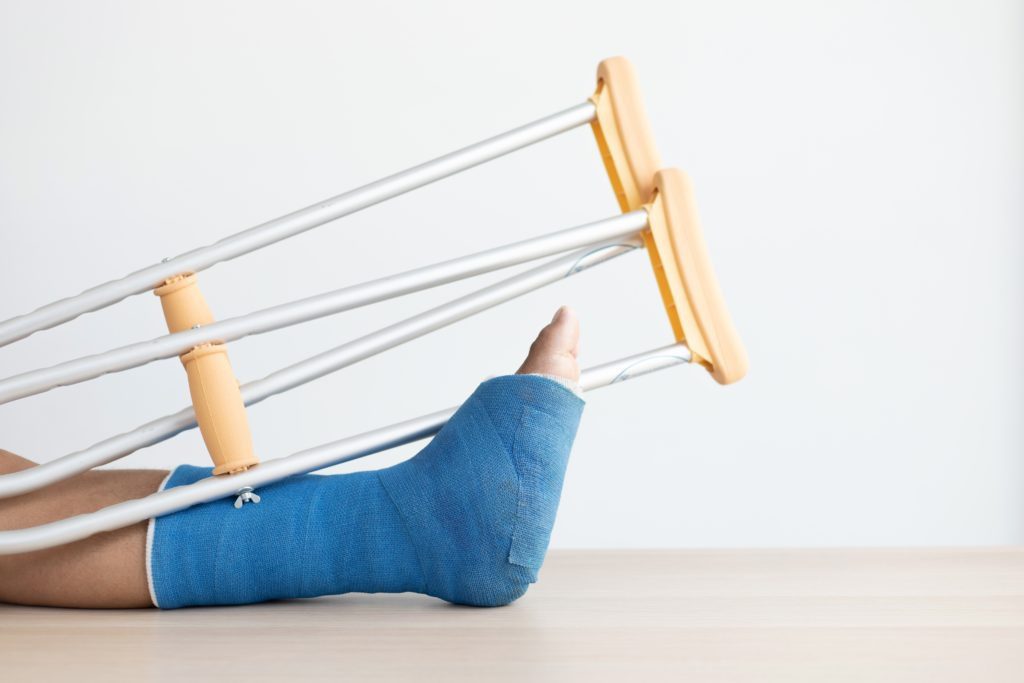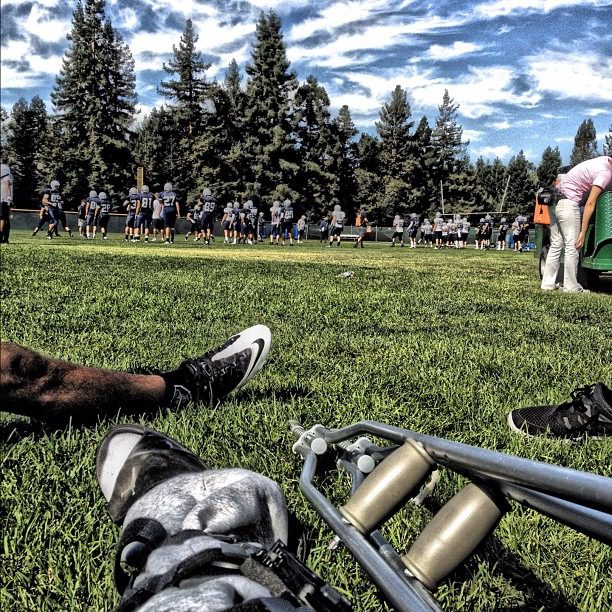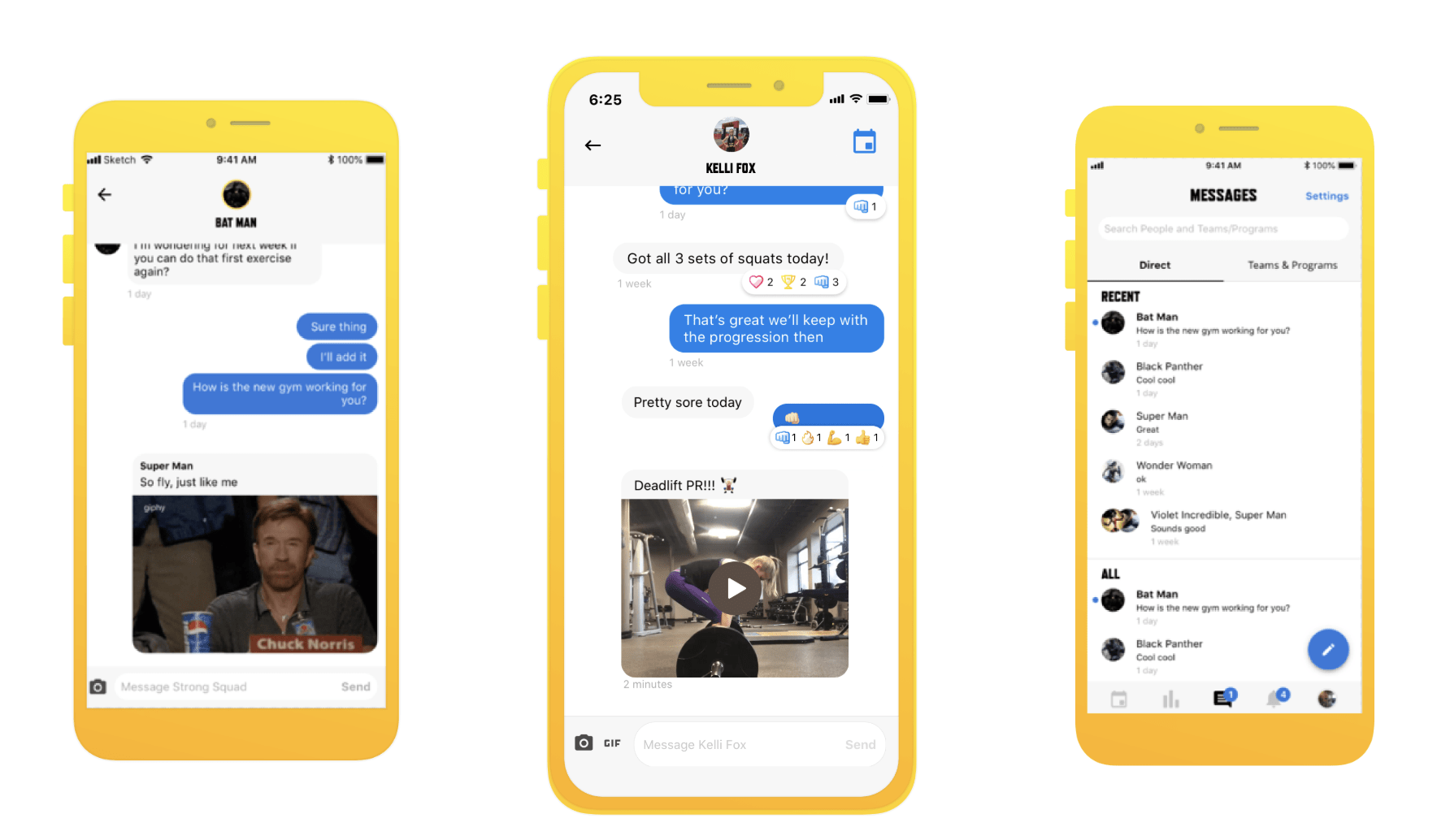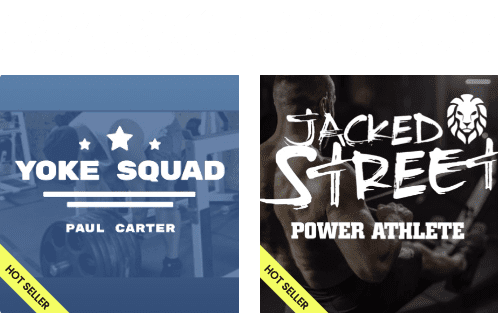Returning from an injury isn’t the result of a single heroic effort, but putting in the required work over and over again.
In this article, Jim explores ways to turn what could be a setback to lament into a learning experience to relish for anyone recovering from an injury.
Jim Afremow
Dr. Jim Afremow is a much sought-after mental skills coach, licensed professional counselor, co-founder of the Champion’s Mind App, and the author of The Champion’s Mind, The Champion’s Comeback, and The Young Champion’s Mind. For over 20 years, Dr. Afremow has assisted numerous high school, collegiate, recreational, and professional athletes. Major sports represented include MLB, NBA, WNBA, PGA Tour, LPGA Tour, NHL, NFL, and the UFC.
// How to Recover From An Injury Or Major Setback Like A Pro
In the preceding part of this series, we took a look at how to re-frame your injury in a more positive and constructive way, introduced an “attack and distract” approach for the days leading up to your surgery (which also applies if you don’t need a procedure), and explored how to tame your anxiety.
Now it’s time to look at what comes next.
You’ve either emerged from a successful surgery or, if it’s a less serious injury, are later down the rehab road than when you read the first post.
In either case, you’re now into the rehab phase where it’s easy to let the PT visits, the daily exercises, and being away from training get you down.
We’re going to explore some ways to turn what could be a setback to lament into a learning experience to relish.

Injury Recovery Takes Consistency and Persistence
Now isn’t the time for sitting around feeling sorry for yourself, because you’re not able to train or compete.
Rather, it’s a chance to step up, be a professional, and do the work necessary to come back and stay back. While what you do during physical therapy and, when you’re ready, with your strength and skills coaches, is largely dictated by others, this is only a small part of your day.
How well your recovery goes and how quickly you return to competition is largely up to you.
Eating well, doing exercises at home, and putting in daily effort – all are within your control. So instead of opting for the easy way out, do the right thing.
As the great John Wooden said, “The work that you do each and every day is the only way to improve and prepare yourself for what is to come. You cannot change the past but you can influence the future only by what you do today.”
Returning from an injury isn’t the result of a single heroic effort, but putting in the required work over and over again. So find at least one way to win your comeback daily, and use the same persistence and consistency that have served you well in your sport or training to progress in your rehab.
Continue Working While You Are Recovering
I’ve always said there are only two ways to train: below the neck and between the ears.
When you’re injured, the former is off-limits, or at least you cannot do everything you used to physically. But the latter is always accessible, no matter what happened to you, how serious it is, or how long your return to play or training takes. While you cannot currently get your reps in on the field, you certainly can in your mind, with the technique of visualization.
At its most basic level, this involves visualizing yourself swinging a club, shooting a free throw, or performing another skill perfectly. Don’t just think about what it looks like, but also envisage what it feels like. Then you can start to layer on other details by considering what you hear, sense, and touch in the moment. If your sport takes place outdoors, feel the sun on your back and the wind in your hair.
If you play indoors in front of a crowd, imagine the roar of the fans and the squeak of your shoes on the hardwood. In this way, you can keep your game fresh mentally even while your body literally cannot play ball.
You can find some pointers on other useful mental skills in my new app, Champion’s Mind.
Hone Your Other Skills
It’s up to you whether you view your layoff as a burden or a blessing.
If it’s the latter, then consider this time away from the game as a golden opportunity to improve as an athlete and a well-rounded person. You might choose to focus on something that will benefit both your recovery and return to play, such as nutrition. In which case, start watching a little Food TV, buy a cookbook or two, and sign up for a class.
Maybe you pick an old hobby backup that you haven’t had time for while focusing on your sport.
Or there could be a new skill – like playing the piano or learning Italian – that you finally stop thinking about and start doing.
With a growth mindset, your recovery opens up a lot of exciting possibilities.
There are always new things to learn, try, and experiment with.
Doing so means you won’t just be idly watching the days go by, but will be developing yourself, as well as providing a welcome diversion from the familiar routine around the physical side of your recovery.
Your Recovery Is Not All About You
One of the common pitfalls I see with athletes is when they turn the spotlight on themselves and their injury at the expense of everything and everyone around them.
This manifests itself in a few different ways. First, it can breed isolation, where you cut yourself off from people and wallow in self-pity.
Second, you can become too self-involved and almost narcissistic, constantly obsessing about yourself while letting the world pass you by.
And third, you can easily get discouraged and start to believe that you’ll never make a full recovery, as you let the negative voice in your head take over.
I once heard a story in which a student of Zen Buddhism came up to his teacher looking all glum and said, “I feel discouraged.” His master smiled and said, “Then go encourage someone else.” The point here is that when our own circumstances are getting us down or we realize we’re concentrating too much on our own needs, we should look outward and consider how we can help others.
This could mean volunteering at a soup kitchen to feed the homeless, or signing up for a program to read to kids at your local library. Or maybe you pick a different teammate each day to call or text, ask how they’re doing, and give them some positive affirmation. This will benefit both of you, and will take your mind off your troubles.
Also make an effort to reach out to friends, attend nieces’ and nephews’ birthday parties, and carve out more time with your family than you may typically have while the season is in full swing.
Relationships are something else you can and should prioritize as you’re getting your body back to full strength, and all it takes is a little effort to reach out, show up, and be fully present where your feet are.
That said, be careful who you’re around and in what context.
Try to surround yourself with positive people, rather than negative ones who might trigger the avalanche of doubts, fears, and negative self-talk that you’re trying so hard to avoid.
Also make sure that while you’re reaching out for help from a posture of vulnerability that you don’t come to depend too much on people or letting them do things for you that you could do for yourself. Be in community, but avoid becoming overly-dependent.
Don’t Hide!

I once had an athlete tell me that while he was injured, he felt like a carton of milk that was forgotten in the back of the fridge and left to spoil.
Sound familiar?
Considering yourself to be the odd one out is a common theme among the players I work with.
This is exaggerated when an athlete completely withdraws from team activities. Don’t believe that just because you can’t take the field, that you have nothing to offer. Of course you do!
As I just touched on, you can contribute to building your team’s successful, winning culture in lots of ways. You could take a rookie under your wing or, on the other end of the spectrum, tap into the wisdom of a veteran and find out how he or she bounced back from injury in the past.
Maybe you make this the time that you become a more vocal leader in the locker room, or one of those “glue guys” or girls that holds a team together through good times and bad.
The same goes for games.
Sure, it can be exasperating to attend a game that you know you should be playing in.
But look at it another way: what can you learn by watching a match from the sidelines rather than playing in it? Probably quite a lot.
One NFL player told me that he was able to see football games in a whole new way while he was rehabbing by seeing them from a fan’s perspective.
Doing the same will allow you to watch tactics unfold, note how your coach’s principles of play manifest themselves, and observe how you might fit better into the latest game strategy when you return.
You’re unable to help the team win on the field today, but you can make sure you’re prepared to do so tomorrow.
TAKE YOUR TRAINING
TO THE NEXT LEVEL
The TrainHeroic Marketplace
TrainHeroic brings online training and strength programs to life with an unmatched imersive training experience delivered directly to your phone. Browse our Marketplace for thousands of programs or take your training up a notch by joining an online community with fresh programming and coaching by some of the biggest names in the strength game starting at $15 / month.

READY TO TRY TRAINHEROIC?
Our powerful platform connects coaches and athletes from across the world. Whether you are a coach or trainer looking to provide a better experience for your clients, or you’re an athlete looking for expert programming, click below to get started.
Want more training content?
More coaches and athletes than ever are reading the TrainHeroic blog, and it’s our mission to support them with the best training & coaching content. If you found this article useful, please take a moment to share it on social media, engage with the author, and link to this article on your own blog or any forums you post on.
Be Your Best,
TrainHeroic Content Team
HEROIC SOCIAL
HEROIC SOCIAL
TRAINING LAB
Access the latest articles, reviews, and case studies from the top strength and conditioning minds in the TH Training Lab



